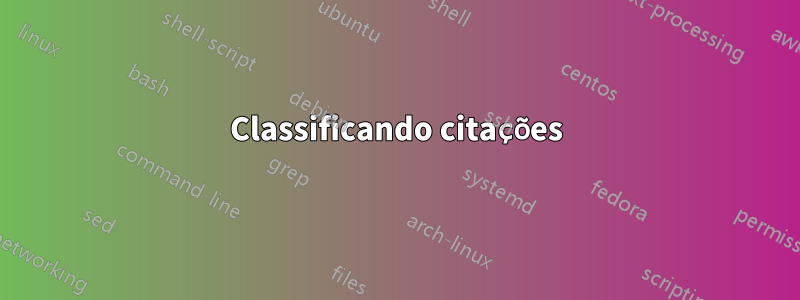
Na minha tese, preciso classificar minhas referências de forma que, embora tudo seja classificado conforme sua aparência, os links de URL sejam classificados no final.
Como é possível usar um arquivo .bst?
Na verdade não. Por exemplo, preciso de um babador;
[1] artigo [2] artigo [3] URL
mesmo que a URL esteja antes dos artigos no texto.
Responder1
Você pode fazer isso facilmente usando categorias com biblatex/biber.
\documentclass{scrartcl}
% some bib entries for test purposes:
\begin{filecontents}{bibfile.bib}
@ARTICLE{art1,
TITLE = {Test 1},
AUTHOR = {Doe, John},
JOURNAL = {Journal of unreproducible Results},
YEAR = {2015},
}
@ARTICLE{art2,
TITLE = {Test 2},
AUTHOR = {Doe, Jane},
JOURNAL = {Journal of unreproducible Results},
YEAR = {2015},
}
@ONLINE{web1,
TITLE = {Google},
URL = {www.google.com},
}
@ONLINE{web2,
TITLE = {Wikipedia},
URL = {en.wikipedia.org},
}
\end{filecontents}
% sorting = none means same order as the appearance in the document
% biber is the modern backend for biblatex, replacement for bibtex
\usepackage[backend=biber, sorting=none]{biblatex}
\addbibresource{bibfile.bib}
% create a new category for web sources
\DeclareBibliographyCategory{web}
% add the web entries to the category
\addtocategory{web}{web1,web2}
\begin{document}
\section{Test}
See \cite{art1}, \cite{web1}, \cite{art2}, and \cite{web2}!
% one bibliography for the non-web soruces
\printbibliography[notcategory=web, title={Print References}]
% and another one for the websources
\printbibliography[category=web, title={Internet References}]
\end{document}
Compile com latex document.tex, biber document.bcf, latex document.tex
onde latex é o compilador de sua escolha.
Resultado:



